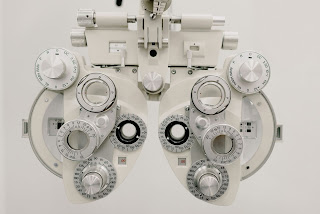 |
| Photo by Ksenia Chernaya from Pexels |
Time sneaks up on everyone. One day you might be in your early 30s and before you know it you are in your 60s. As you grow older, you need to be more aware of your health and take care of yourself. Believe it or not, your annual eye exam also becomes more important as the years go by. Visiting Angels Punta Gorda discusses why seniors should go to their annual eye exam appointment.
When something is wrong with your health, would you rather know sooner or later? Most people would want to know sooner because things tend to get worse the longer that someone waits. Annual eye exams are great because they allow a professional to catch any health problems before they become serious. Depending on the eye exam that someone chooses, their eye doctor can dilute their eyes. Once the eyes are diluted, doctors can take a look at the condition of the eyes and make sure that everything is okay. In other words, eye exams can help you protect your overall health.
For more information on eye exams, you may visit four reasons why seniors need annual eye exams.